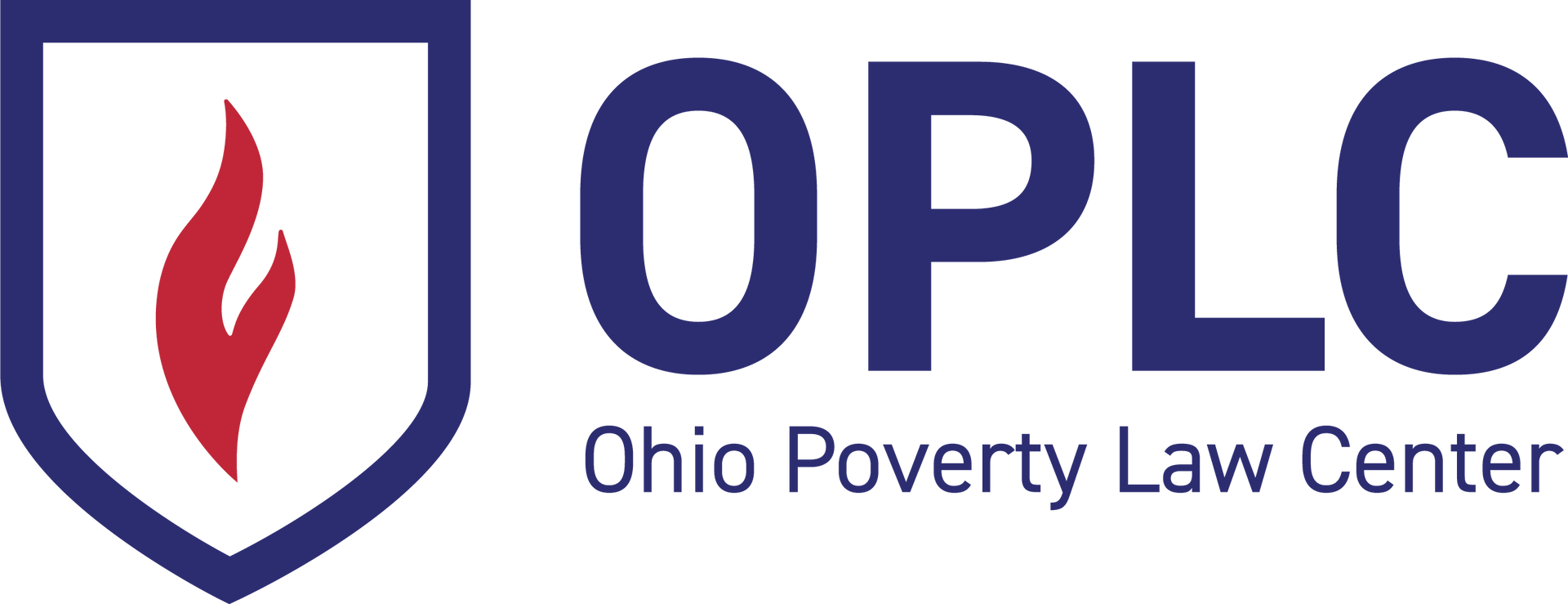JULY 2020 NEWSLETTER
OPLC’s 2019 Annual Report
The Ohio Poverty Law Center is pleased to announce the release of its 2019 Annual Report. Our mission has been focused on reducing poverty and increasing justice through protecting and expanding the legal rights of low-income Ohioans. In 2019, OPLC achieved major accomplishments through advocacy and information sharing across the state. OPLC made strides towards a more equitable Ohio through initiatives such as advocating for state funding to help low-income individuals, promoting the driver’s license reinstatement fee amnesty program, and expanding our reach through advocate training.
We are proud to reflect on this past year’s success and are excited to continue efforts in fighting for the most vulnerable as we push forward in 2020.
Occupational Licensing Reform Advances
House Bill 263, deemed the Fresh Start Act, was approved by the Ohio House of Representatives with a 90-1 vote. The bill will give more opportunities for Ohioans with certain criminal convictions to obtain occupational licenses. The bill would require a licensing agency to create a list of disqualifying criminal offenses that are directly related to the duties and responsibilities of the licensed occupation, and agencies could only consider these offenses for five years from the date of conviction or release from incarceration, whichever is latest. Under the bill, there is no time limit for the consideration of violent and sexually oriented offenses. The bill will now head to the Senate.
Infant Mortality Legislation Approved
Ohio has made slight progress in attempting to lower its infant mortality, the rate remains above the national average and disparities persist. Black infants are dying at a rate that is more than two times higher than their white counterparts.
House Bill 11 was signed by the Governor on June 19, 2020, and is the most significant infant mortality legislation passed by this General Assembly. The new law:
- Requires Medicaid coverage of smoking cessation programs without cost-sharing measures or time limits.
- Requires the Ohio Department of Health (ODH) to establish a grant program for the provision of group-based prenatal health care services to pregnant Medicaid recipients residing in areas with high preterm birth rates and appropriates $5 million for the program.
- Permits the Ohio Department of Medicaid to establish a dental program under which pregnant Medicaid recipients may receive two dental cleanings a year.
- Requires ODH to develop educational materials concerning lead-based paint and distribute them to families who participate in its Help Me Grow Program and reside in homes built before 1979.
HB11 alone will not fix our Ohio’s infant mortality crisis, but it is an important measure to help Ohio become a state where children are happy, healthy, and able to reach their first birthday.
Unemployment Compensation Good Cause Exemptions From Returning to Work
In May, Ohio Poverty Law Center and Policy Matters Ohio asked Governor Mike DeWine to allow unemployed Ohioans to refuse an offer to return to work and continue receiving benefits if they had real, justifiable reasons.
On June 16, Governor DeWine signed an executive order defining circumstances under which workers may refuse an offer to return to work and continue receiving unemployment compensation benefits. There are five exemptions that constitute good cause under the Governor’s Order:
- a medical professional’s recommendation that an individual not return to work because of he/she falls into a category that is considered “high risk” for contracting COVID-19 by the CDC and the employer cannot offer teleworking options,
- employees 65 years of age or older,
- evidence of a health and safety violation of the employer,
- potential exposure to COVID-19 and subject to quarantine, or
- caring for a family member with COVID-19 or a family member who is quarantining as recommended by a health professional.
While we are glad to see these exceptions, the order does not cover those who must stay home because their child care is not available due to COVID-19 closures.
Another Month of Rent Due Makes the Need for Rental Assistance More Urgent
OPLC continues to advocate on the state and federal levels for emergency rental assistance. Eviction moratoriums have been lifted across the state and many courts are hearing eviction cases. A U.S. Census Bureau survey reported that 36 percent of Ohio renters did not have confidence that they would be able to pay July rent.
OPLC joined with dozens of other organizations to ask Governor Mike DeWine to allocate $100 million of unspent federal Coronavirus Relief Fund dollars for emergency rental assistance. Congress is expected to pass some form of additional relief legislation later this month. We are advocating that Congress approve $100 billion for emergency rental assistance.
